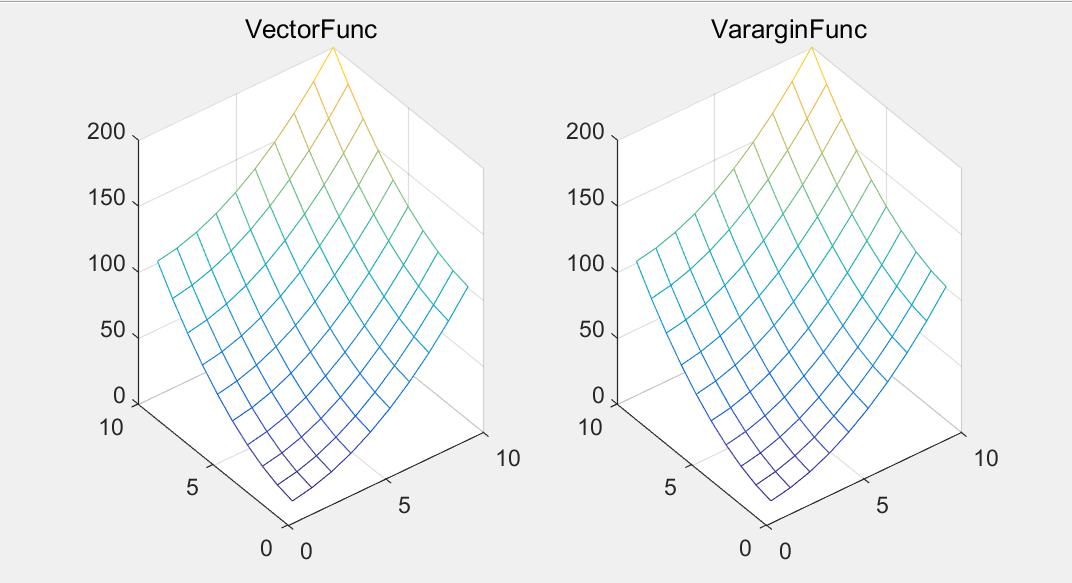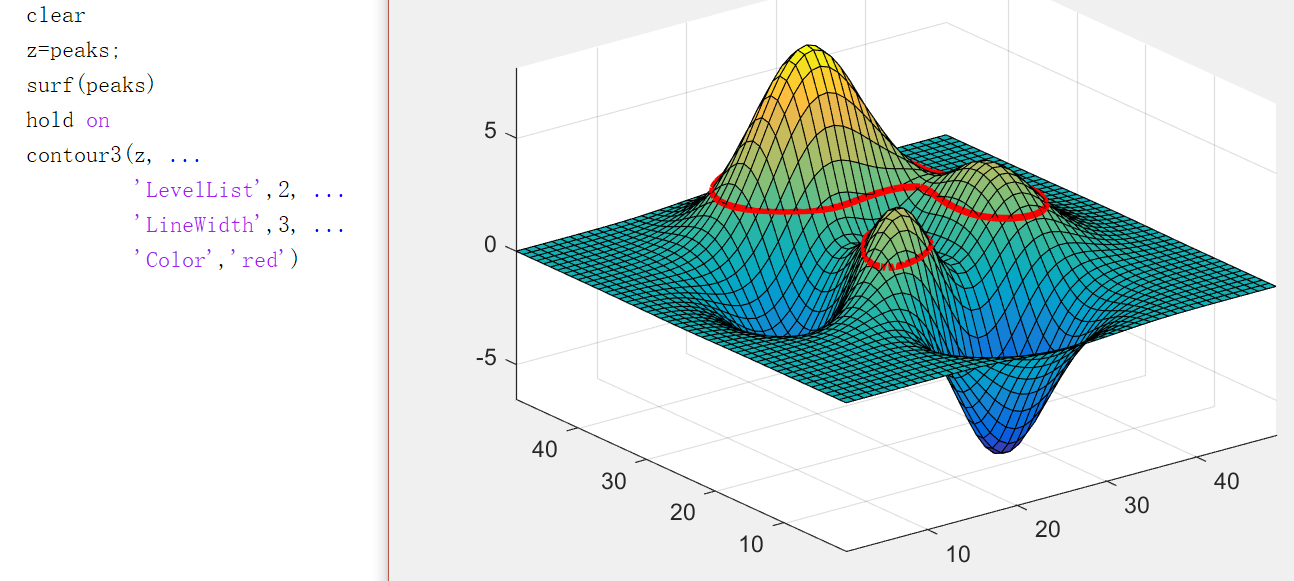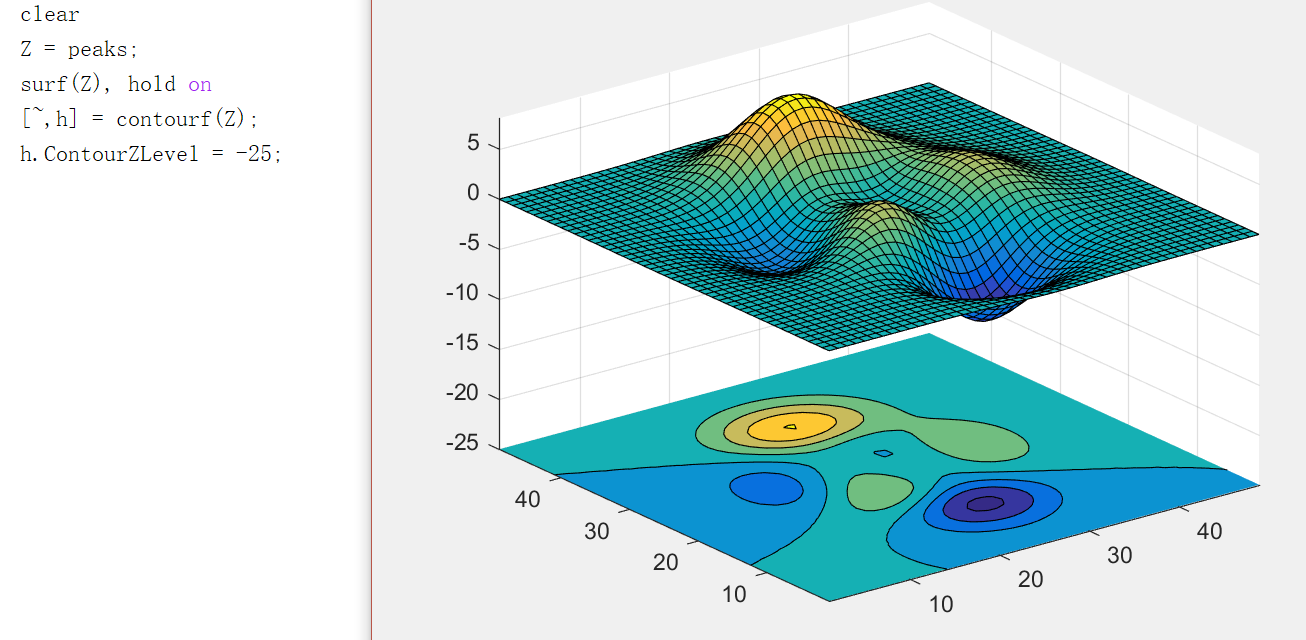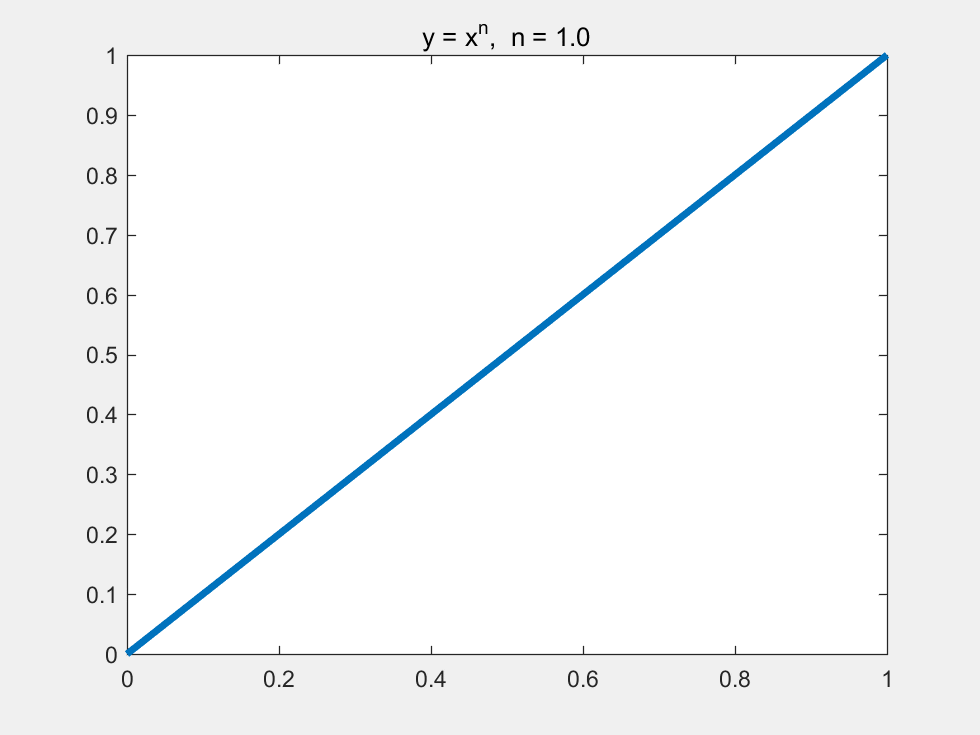Matlab Memo
· 阅读需 4 分钟
Some Matlab note
向量值函数~多元函数转换
2元函数画图要用meshgrid打网格,得到两个矩阵X,Y,然后mesh画图。
是直接的2元函数就很好办,但是有时候会碰到多元向量值函数,一般只有1个参数,是向量,每一列是一个参数。像这种函数就不能打网格画图。
Ex:
VectorFunc = @(x, ~) x(:,1).^2 + x(:,2).^2 ; %向量输入,D=2
VararginFunc = @(x, y) x.^2 + y.^2; %矩阵输入
keyword: 向量值函数 多元函数 reshape
Ans:
解决方案用reshape
clear
VectorFunc = @(x, ~) x(:,1).^2 + x(:,2).^2 ; %向量输入,D=2
VararginFunc = @(x, y) x.^2 + y.^2; %矩阵输入
Fitness = VectorFunc;
% 向量函数画图
[mesh_Plot_X, mesh_Plot_Y] = meshgrid(1:10, 1:10); % 打网格
[tmp_len_y, tmp_len_x] = size(mesh_Plot_X); % 获取矩阵维度
tmp_XX = [reshape(mesh_Plot_X, [], 1), ... % 矩阵转向量
reshape(mesh_Plot_Y, [], 1)];
fit=Fitness(tmp_XX); % 计算
Vector_Z = reshape(Fitness(tmp_XX),tmp_len_y,tmp_len_x); % 结果转为矩阵
subplot(1,2,1),mesh(mesh_Plot_X, mesh_Plot_Y, Vector_Z);title('VectorFunc');
Varargin_Z = VararginFunc(mesh_Plot_X, mesh_Plot_Y);
subplot(1,2,2),mesh(mesh_Plot_X, mesh_Plot_Y, Varargin_Z);title('VararginFunc');

keyword: contour3/等高线
clear
z=peaks;
surf(peaks)
hold on
contour3(z, ...
'LevelList',2, ...
'LineWidth',3, ...
'Color','red')

- Matlab how to change contourf plot's location on z axis
- plot multiple 2d contour plots in one 3d figure [Matlab]
- matlab contourf函数 怎么加一维高度数据?
ASK: 怎样移动等高线的位置?
keyword: surfc contour/等高线
Z = peaks;
surf(Z), hold on
[~,h] = contourf(Z);
h.ContourZLevel = -10;
 [2017-05-07]
[2017-05-07]
keyword: Matlab GIF 动态图
Ans:
clear;
x = 0:0.01:1;
n = 1:0.1:5;
nImages = length(n);
filename = 'GIF_testAnimated.gif'; % 指定GIf文件名
figure(1);
for idx = 1:nImages
y = x.^n(idx);
plot(x,y,'LineWidth',3);
Formated_title = sprintf('y = x^n, n = %-2.1f', n(idx) ); % 标题格式化
title(Formated_title);
drawnow;
frame = getframe(1);
img = frame2im(frame);
[A,map] = rgb2ind(img,256);
if idx == 1
imwrite(A,map,filename,'gif','LoopCount',Inf,'DelayTime',0.1); % GIF 时间间隔可调
else
imwrite(A,map,filename,'gif','WriteMode','append','DelayTime',0.1);
end
end
imwrite(A,map,filename,'gif','WriteMode','append','DelayTime',2); % 最后一帧 延时

keyword: matlab 向量 变 矩阵
Eg:
A=[ 1 2 3 ];
B=[
1 2 3 ;
1 2 3 ;
1 2 3 ;
1 2 3 ];
Ans:
repmat(A, TIMES, 1)B=A(ones(TIMES, 1), :)
>> B = repmat(A, 4, 1)
B =
1 2 3
1 2 3
1 2 3
1 2 3
>> B=A(ones(4,1),:)
B =
1 2 3
1 2 3
1 2 3
1 2 3
[2017-05-06]
